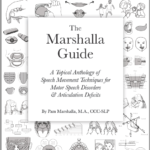Your Middle Schooler
Back in 2007, I launched my first Blog called “Your Middle Schooler: A Unique Age.” It seemed to be a nitche that hardly anyone covered. My initial post read as follows
For the past 12+ years I have worked as a Middle School Speech Language Pathologist. At the same time my own three children swam through the sea of middle school. I guess on some level that makes me a middle school expert. I am not sure about that but I have observed middle school intensively worked with both regular and special education teachers, dealt with administration, observed curriculum development (and lack of it), proctered state level examinations, been involved with displinary issues and watched hormones go crazy. When it comes to middle school I can honestly say, “been there done that.”
When you research Early Childhood development information is overwhelming, everyone has an opinion and free information is available in every toy store and doctors office. However, look for information/advice on anything related to the middle school aged child and your results is limited.
I’ve now had 17 years of wonderful middle school experiences in a variety of different communities. I know that the Middle School years are just as unique and developmentally important as the preschool years. If certain skills are not acquired during the Middle School years, higher level language development and learning will be effected. I hope to continue to provide some a lot of information about language development during the ages of 11-14 and practical suggestions on how to interact with the middle schooler in your life. I welcome any questions, concerns or comments.
Teresa
January 2012
Some of the initial material on this page might be recycled from the original Your Middle Schooler: A Unique Age. Sorry about that, but a review of good ideas never hurts.
The Glory of Multiple Meaning Words…….Run or Run or Run
Understanding multiple meaning words is one of the first higher order language tasks that most children acquire naturally through reading and basic instruction. Younger children will also pick up dual meanings through kid type songs, jokes and phrases. For those students who demonstrate even slight language delays or impairments, understanding multiple meanings can be challenging. Without awareness and understanding of multiple meaning words, students may experience decreased comprehension, misunderstandings and the biggest problem of all ….they have difficulty understanding humor and slang. Basically these kids won’t “get it.”
So how do you teach the concept of multiple meanings? First the students have to learn that multiple meanings exist. The best way to start is with simple words. My all time favorite word is “run.” According to dictionary.com there are over 150 meanings for the word run and that doesn’t include its’s use in slang and idioms.
Starting with 10-15 meanings for the word run is a good place to begin. The initial “run activity” has to be dramatic and high energy. Let the kids generate as many meanings as they can on their own. After that gives hint and cues before giving the meanings. Use run in a sentences with specific meaning and act the meaning out if possible. Fill up that white board or paper (yes in this day and age SLP’s may not always have access to even a white board and a functioning marker). Act as if you never knew there were that many meanings for one word. Every little detail should be explained to make sure the kids can connect the different definitions to make them meaningful. This is a fun activity and kids always leave with a smile on their face.
In the following sessions the concept of multiple meaning words is reinforced by presenting other dual meaning words and using them in sentences. By teaching the concept of multiple meaning words the kids are being encouraged to use critical thinking skills rather than just drawing from a word bank. Using critical thinking to figure out meaning is one of the main keys to developing and use of higher order language. I do tell the kids that words with two meanings and the same spelling are homophones but just as side knowledge. I’m focusing on the skill not the ability to label.
There are several resources I’ve used over the years but I have two favorites “Say One Thing Mean Another” by . This workbook has examples that I use to reinforce the concept of dual meaning words. The examples start out a little easier and get more difficult. I may use all of the examples or just some of the easy ones depending on the students age and ability. “Say One Thing Mean Another” also focuses on other higher order language concepts such as dual meaning sentences, dual meanings based on stress (sarcasm) and idioms. My favorite when working with younger kids is the vintage workbook “Language Remediation and Expansion” by Catherine S. Bush. This is a book of 100 skill-building reference lists. Some of the examples are dated but easily modified or omitted. I’ve actually had my older students use this book as a reference when designing their own multiple meaning game. I do keep current and have a homophone apps on my iphone. I find the examples on the apps either too easy or too difficult. With multiple meaning activities on apps the kids usually have a 50/50 chance to get them correct. I also can’t modify the apps to encourage critical thinking.
****See comments below
How many meanings can you think of for the word “run”? How about “run” in idioms and slang phrases? It is hard to generate them off the top of your head but is amazing how many meanings we use on an almost daily basis.
How do you teach the concept of multiple meaning words?
12 ways to enhance summer reading for middle schoolers
Follow me on Examiner
12 ways to enhance summer reading for middle schoolers
This is a rewrite of an article I wrote several years ago. I’ve added a couple of new strategies.
Can schools be proactive rather than reactive?
Over my years of working as a Speech Language Pathologist, I’ve worked in many schools. Every school has it’s own set pluses and minuses. Wouldn’t it be great to create a school with only pluses. For that to happen, schools would have to get into the mind set of being proactive rather than reactive.
Here is my list of the positive and proactive ideas I’ve seen implemented in school systems that seem to work well. Some of these are simple, some take some effort and some are no longer possible in the public schools because of the changes taking place in education. What’s on your list?
A consistent leveled discipline plan, one that is followed by the whole school. Walking into any classroom and knowing what the expectations are makes it easy for professionals other than the teacher to employ discipline on an even plane. Better yet, the students learn expectations and consequences. It’s amazing the problems that don’t come up when this type of program is in place.
A strong and consistent teacher developed curriculum. Years before state wide testing or common core I worked in a school system that used teacher curriculum committees to develop curriculum. That school had the best curriculum hands down. The superintendent was committed to keeping curriculum committee and did for years. The curriculum was tweaked on a regular basis as needed, books were updated and supplemented when necessary. Parents could learn and follow the curriculum from child to child. Parents and children knew what special trips and areas of study to look forward to in every grade. Another school had one person developing curriculum and the differences were tragic.
Teachers working together by grade or subject, following the curriculum and teaching from the same materials. If a school has a lose curriculum and no time for teachers to meet one first grade teacher may teach a strong phonics program and the other first teacher likes a whole language approach, imagine the different skill sets those first graders have when entering second grade and who knows what the second grade teachers likes to teach.
Schools that give a lot of attention to phonics and rote type activities, such as memorizing times tables and poems. These schools have students that are more flexible with their language and math skills. They not only read better they answer quicker.
A consistent schedule not only daily but year after year.
A schedule that provided ample time for children with special needs to be seen that didn’t single them out. In one school system the middle school schedule include an hour daily that functioned like a study hall. Students could do almost anything during that hour except homework. Some activities the children participated in included scheduling time for special education services, asking teachers or assistants for help, working on group and individual projects, research, finishing up class work, extra gym, art, music, and free reading.
School’s that valued teacher’s knowledge, expertise and experience was considered when solving educational problems. These schools usually save money and solve problems quicker. Some school systems will introduce some trendy new approach because they think it will fix a problem. Trendy new approaches are usually chosen by one person, often cost a lot of money to implement and almost always fail or fizzle out. If schools need a new approach to say reading or math. Do some hard research and find out what is working in other places.
Want to save money? Ask the teachers. Tax payers would never vote for overrides if they realized the waste that goes on in a school. Teachers are in the trenches, they see it all and can usually come up with very creative solutions.
Schools that keep inventory seem to look cleaner and the materials last longer.
Schools that allowed long recesses and lunch times do seem to have kids that focus better and are more energetic. In most schools, kids get 15 minutes to shove in their food, are consistently yelled at to get going and then get to run around on the playground for 15 minutes. Kind need to run around. Schools also need to provide basic equipment on the playground. It’s amazing what kids can do with a ball or a jump rope.
Schools that valued art, music and foreign language. These are the first items on the chopping block come budget time. I’ve worked in schools that work hard to save these programs and the children are clearly better for the experiences. Schools that maintain some fun and different activities have a different overall vibe in the school. Not to mention art, music and foreign language all make the brain work in different and creative ways.
Schools that are smaller are just more successful. Not small like 12 kids in a class but small like only 500 kids or less in a school. This just makes sense, easier to manage. In mega schools kids get lost
Schools where children were encouraged to do things for others and their community. One school I worked in actually went overboard with this but that school was much better off than the school who encouraged nothing.
Schools where teachers and other professionals were encouraged to learn from each other. Time is given to share new ideas, express concerns and obtain support.
Schools that don’t feel they need to reinvent the wheel just to show how great they are. Do some research, see how it’s done successfully in other schools, tweak it if necessary and adopt it as your own.
Hopefully as I continue my career working in schools I can continue to add to my positive list of ideas. Unfortunately, a lot of negative ideas also seem to work their way in. Imagine if principals, superintendents, other administrators and school boards could share their ideas on a regular basis, what works and what doesn’t in the management of schools. Consultants would be out of business and there would be no market for poorly constructed materials.
No one is going to be able to build or operate the perfect school. We are not perfect people or perfect educators. Wouldn’t it be fantastic though if schools and school administration could implement pro-active ideas for improving their school rather than having to be reactive all the time?
Share:
What are some of the great ideas or procedures you’ve seen implemented in schools?
Here come the high school years
I’ve been a little reflective this week. Last weekend my oldest son graduated from college on Saturday and my youngest son graduated from high school on Sunday. I found this article written in 2009, the year my youngest was a freshman in high school. It was written from the perspective of a parent who had gone through the process and a teacher who knew the types of schools kids were looking at. At the end of the article I wrote that I was a little sad not to have a middle schooler any more. I’m not sad at all that I don’t have a high schooler anymore. One reason is is that I know I have raised a confident and capable young man soon to be considered an adult. The other reason is no more private school payments! Imagine the possibilities!
Here Come The High School Years
Even though we are still in the dead of winter most middle schools around the country have already began preparing their 8th grade students and their parents for High School. In my district, they have already hosted a parent information night and visited the High School. Next week our students take their placement test. Most private High School and alternative High School applications were due in December and students are anxiously waiting to see if they get in. Moving on to high school is a big deal for these kids and most are ready to move on. However, I guarantee that most kids are thinking about what their social status will be in High School, not “am I going to be able to do the work or will I be successful?”
Students will enter high schools at a variety of different academic and maturity levels. High School placement tests are fairly good at placing students in the proper academic level. Public Schools will usually offer 2-3 different academic levels for students to enter. Private Schools will often offer 4-5 different academic levels. Parents need to understand that just because their middle schooler was an honor roll or even high honor roll student that does not automatically mean that the student is placed in the highest academic level. “A” work in middle school is very different than “A” work in high school. So don’t be too concerned about your child’s initial placement but do keep an eye on your student’s progress. You and your child will realize quickly if the work is too easy or too difficult. At that point, your child can speak to their teacher or guidance counselor about moving levels. Always let your child try to work things out on their own before intervening, it is high school after all.
By the end of 8th grade, kids are starting to feel really grown up. Parents occasionally seem to think it is the right time to back off completely. Don’t think they don’t need you because they do. They still need guidance, support and supervision in High School. What they don’t need is hovering. It is a fine line but you still need to know what your child is doing in school and how they are doing in school. Supervision after hours is just as important. They are experimenting with new friendships. Keep tabs on who their new friends are and don’t assume every parent has the same rules and values you do.
Homework becomes more important in high school. Usually a good percentage of a student’s grade is based on homework completion. If your school keeps grades on line, continue to check assignment completion, often. Your child should be doing some homework at home if they are not I would check in with teachers or review teacher expectations (usually provided as an outline). Some district might even have a homework policy. There is some controversy among teachers and administrators around homework. Let’s face it not all parents can do calculus or even algebra for that matter. We are probably all a little rusty on our French or Spanish. The controversy is that students do not go home on an even playing field where homework is concerned. However, by High School shouldn’t expectations be raised and shouldn’t students be more independent around homework? If your child is having difficulty academically in high school, encourage them to get help from their teachers before you step in. At the same time make sure they are doing the work.
I think it is important for all parents to have a basic idea of the school curriculum. You need to make sure of what they are taking and when they are taking it. If you have a child who receives special needs services it is a lot more important for you to be involved. You need to know exactly what your child is suppose to get, when the services take place, who will be providing the services and a direct contact person for any special needs concerns. Most schools will go out of their way to review programs and educational plans with parents of special needs students. If your child’s high school balks at this, pay even closer attention to their services. Any school I have ever been involved with as a Speech Language Therapist or as a parent has tried their best to design appropriate service plans, listen to students and parents and respond appropriately. Schools are not always perfect but remember you also have to work at developing a good working relationship with them. Education plans should be ammended or updated to dovetail with the high school schedule.
Don’t be too worried about your baby going off to high school. They will probably be ok. It’s scary for us parents and I know I’ve been on pins and needles those first few days of high school…..just worrying and wondering if everything is ok. Rather glad I don’t have to go through that again. Try to know what is going on with your child. Keep talking to your high schooler even if they don’t want to. Find something you can both feel comfortable talking about or do together, and then sneak some serious discussions when you can. Let your child know your expectations for their academic performance and behavior in general. You don’t have to set expectations at an impossible or stress inducing level but set some expectations. I’ve seen one child through high school and off to college and enjoyed almost every minute of it.
The picture above is of my son’s 8th grade graduation last June. I no longer have a middle school student. A little sad I have to admit.
Use Comics to Develop Higher Order Language
How long has it been since you read a comic book or the funnies? Most people began reading them for fun when they were young tweeners and probably never thought much of it. If you ever analyzed the language use in most comic books and funnies you might realize that they can make excellent and natural higher order language learning tools.
Most of us developed higher order language so naturally that we didn’t even notice. Higher order language is basically the ability to use and understand synonyms, antonyms, homonyms, homographs, figurative expressions, dual meaning sentences, metaphors, similes, idioms, sarcasm and non-verbal messages that might contribute to meaning. Higher order language allows us to see the “big picture.” Without the ability to understand and mentally manipulate higher order language you are unable to play with language, completing crossword puzzles is painful and you have difficulty “getting” jokes. These are very right brain concepts.
Students with language disabilities, poor academic skills, poor hearing or limited life experiences often have difficulty acquiring higher order language skills. You will be able to pick these kids out easily. They are the kids who struggle with reading comprehension, don’t get jokes, misunderstand sarcasm, misinterpret social situations and may even have frequent disagreements with peers.
The language used in comic books or in the funnies encompasses many higher order language structures. In addition there is a picture component that will aid comprehension. Take Peanuts for example, the comic itself is from the point of view of the children. The author/genius Charles Schulz, used the language in the comic to make it funny, show emotion or even to make a political point. He used the children in the comic to make it cute and appeal to children. If you grew up in the United States, the first comics you probably read were Bazooka Joe. Part of the experience of Bazooka gum was (and still is) reading the comic. Bazooka Joe comics were used to tell a joke or provide wisdom. For many years the front page of the Sunday Funnies were graced by The Family Circus. Each week Dolly, Billy, Jeffy, and P.J. got into predicaments that were familiar in every family. The cartoonist Bill Keane often used synonyms, antonyms, homonyms, sarcasm and dual meaning language to get his message across and make his comic funny.
Gary Larson’s The Far Side wins the prize for the best usage of higher order language. These simple one cell cartoons combined with a few lines of written language speak volumes. Comics in general are a creative medium incorporating both written and picture messages. When parents read comics to their children it adds another layer of auditory learning.
As kids get older their tastes will change. Don’t freak out when your child asks to buy Mad Magazine. It’s rude and it’s crude but it is froth with higher order language and unfortunately humor that interests them. Some daily funnies tell an ongoing saga which can show conflict and encourage prediction. The beauty of comics is that even children with language deficits can grow in their comic maturity. They might however need increased explanation as to “why” something is funny. That makes great conversation at the family table.
So while you might want your children to read the classics (and they should) encourage a variety of reading material including comics. Comics can do just as much for their higher order language development and you both might get a laugh out of it too.
Teresa Sadowski MA/SLP-ccc
The School Speech Therapist
Understanding higher order language skills
This article was originally posted in Your Middle Schooler: A Unique Age in February 2008. It was the first in a series of articles on Higher Order Language Development. The importance of higher order language development and what to do to foster higher order language development. In following articles I will address strategies to foster understanding and use of higher order language development. If you have a specific concern in this area contact me.
Develop Those Higher Level Language Skills!
During the middle school years, students are beginning to develop higher level language abilities. Most students do this so naturally we do not even notice. Teachers do their best to help students gradually develop mature language skills. However, students with language disabilities or just weak academic habits may have difficulty acquiring these higher level language skills.
What are some higher level language skills?
• Development of mature vocabulary
• Understanding of word relationships such as homophones and homographs
• Understanding and use of figurative expressions
• Organization of mature sentences (oral and written)
• Understanding and use of mature grammatical structures (oral and written)
• Ability to draw conclusions and inferences
• Ability to paraphrase and rephrase with ease
• Ability to reason
• Looking at things from another’s perspective
Concerns when Students do not attain higher level language skills.
• Difficulty with comprehension (oral and written)
• Unable to understand and make connections and associations
• Difficulty understand jokes, riddles and humor in general
• Inability to organize language
• Writing skills will suffer
• Poor problem solving skills
• Inability to be flexible with language ( I will explain more about that later)
• Academic success is effected
• Immature pragmatic abilities (social speech skills)
Misunderstandings in social situations
Many simple activities can help foster development of higher level language skills. Keep an eye on my blog. I will continue to provide information and suggestions for intervention. If you need me to address an area ASAP or you have specific questions drop me a comment.
Teresa
Hearing health in children and adults
http://www.examiner.com/speech-pathology-in-boston/earbuds-proceed-with-caution
New article on Examiner focusing on proper use of earbuds to maintain good hearing health. You might want to consider bring this up at your school in May, as part of better speech and hearing month.
Teresa
Chronic Otitis Media and Risk of Reading Failure
This article was originally published in “Your Middle Schooler: A Unique Age” in 2008. I try to include information on hearing history in every evaluation I perform. Not just for curiosity but because I really feel early hearing history plays a significant roll in language development and “learning to listen”. Last time I asked audiologists were not supporting this correlation. I hope things have changed. Because it is not a big issue in audiology, I have a hard time getting most administrators to accept this as an issue. As long as the kids pass the school screening, life is good. If universal supports were put in place around hearing and acoustics in general imaging the problems that could be avoided.
WEDNESDAY, JANUARY 16, 2008
Chronic Otitis Media and Risk of Reading Failure
While this paper does not specifically pertain to Middle School Students, I would have to guess that approximately 60-70% of my middle school caseload, at any specific time, have a history of Chronic Otitis Media also known as ear infections. Many of these students also have associated reading difficulties or history of reading difficulties.
.
Chronic Otitis Media and Risk of Reading Failure
by Teresa Sadowski MA/SLP-ccc
May 2007
Having worked as a Speech Language Pathologist for over 20 years, it always amazes me the number of students on my caseloads, that have a history of chronic otitis media or a history of excessive fluid in the middle ear. Perhaps it is not that that unusual. Statistics show that 70% of children will have at least one bout of otitis media commonly known as an ear infection before the age of 3. For many children ear infections are a recurring problem. It would not matter what level I was working with. I can state with some certainty that at least 50% of my public school caseload at any given time had a significant history of fluctuating hearing loss early on due to fluid in the middle ear because of chronic ear infections or chronic allergies. Let me make some generalizations about these kids. During my preschool experience, the students usually presented with articulation difficulties, had trouble with rhyming, had trouble remembering the right words to songs and many of them always seemed one step behind when responding verbally. Preschoolers may still be dealing with occasional ear infections, effecting hearing acuity and requiring treatment. During my kindergarten through 5th grade experience, the underlying language issues demonstrated by these students developed into actual reading problems. Simple articulation errors usually resolved but difficulty with phonics emerge. These students usually receive additional support services, specific reading instruction and tutoring. Often even with specific reading instruction, these kids were slow to have any kind of success with reading. During grade school, hearing usually stabilizes but it is not unusual for these students to still suffer with an occasional ear infection or fluid filled ears (especially during allergy season). In middle school my students continue to struggle with reading, they can usually decode consonants but vowels might be a problem. Difficulties with reading comprehension become very obvious. Most also demonstrate poor fluency when they read. These students have not naturally acquired the higher level language skills such as understanding ambiguous and figurative language. Their overall vocabulary is weak. These are the kids who miss the nuances and subtleties in language, they don’t get the jokes and they are not very flexible with their own use of language.
So what is the common thread that keeps kids with chronic ear infections or chronic allergies from becoming proficient readers? The answer could be very simple. Both groups experience fluctuating hearing loss early on. Ear infections occur through out childhood but the incidence of ear infections actually peaks between 6 and 12 months of age. When a child has fluid in his middle ear sounds can become seriously muffled, high frequency sounds cannot be heard. As a result, kids might miss a lot of what is said to them or miss a lot of environmental sounds that convey meaning. When hearing is effected, sounds, words and sentences are easily missed and/or misunderstood. A baby or young child obviously can’t tell you what they are missing. They can’t ask you to repeat yourself. They can’t tell you they can’t hear you because background noise is too loud. Their hearing can fluctuate so much that we cannot figure out what they are missing or when. Children learn language through direct contact with others and through imitation. If their hearing is distorted, imagine how they might perceive individual sounds both speech and environmental. I have always felt that these babies and kids miss critical information or do not develop critical listening skills that in some way effects the development of language and later on development of reading/spelling/writing skills. Basically, they may have missed critical developmental periods where they are learning to listen to, learn about and discriminate phonemes or individual speech sound.
It is surprising that so little research has been done around the very common correlation between fluctuating hearing loss and difficulties acquiring reading skills. One very interesting study, completed by Dr. Heather Winskel, from the University of Western Sydney, Australia, found that if a child experiences a middle ear infection during the crucial first years of life, it may have long-term effects on subsequent language and literacy development. In her study, she compared two groups of 43 children between the ages of 6 and 8. One group had an early history of repeated episodes of otitis media and the control group was matched for age, gender and socio-economic status. Children were tested on three different linguistic levels – phonological awareness, semantic knowledge and narration and reading ability. The children with a history of ear infections tended to achieve lower scores on phonological awareness skills of alliteration, rhyme and non-word reading, semantic skills of expressive vocabulary and word definitions and reading compared to non-otitis media children. Research agrees strongly that phonological awareness or phonemic awareness is a necessary skill that children need to begin reading. Could poor development of phonemic awareness be the key factor why children with a history of fluctuating hearing have difficulty learning to read naturally, using traditional methods?
So what is phonological or phonemic awareness? Scholars differ on what exactly to call it, but it is the same thing, here we will use the term phonemic awareness. Phonemic awareness is the ability to identify individual sounds and their order within words, underlies self-correction in word attack, word recognition and spelling: the ability to go from whole to the parts (Lindamood and Lindamood 1998). Phonemic awareness is not only correlated with learning to read, but research indicates a stronger statement is true: phonological awareness appears to play a causal role in reading acquisition. Phonological awareness is a foundational ability underlying the learning of spelling-sound correspondences (Stanovich, 1993-94). Basically, phonological or phonemic awareness is the ability to identify the sounds in words, not the letters but the sounds. For most of us, we acquired this skill so naturally we did not know we were doing it or we have practiced this skill for so many years it is second nature. Phonemic awareness develops long before our ability to put sounds and letters together. Adams in 1990 described 5 levels of honemic awareness in terms of abilities:
to hear rhymes and alliteration as measured by knowledge of nursery rhymes
to do oddity tasks (comparing and contrasting the sounds of words for rhyme and alliteration)
to blend and split syllables
to perform phonemic segmentation (such as counting out the number of phonemes in a word)
to perform phoneme manipulation tasks (such as adding, deleting a particular phoneme and regenerating a word from the remainder).
Scholars will also differ slightly on the levels of phonemic awareness or use different words to describe each level but they all pretty much agree that rhyming is when children show initial phonemic awareness. As a speech language pathologist, I would have to differ saying phonemic awareness begins much earlier. I believe phonemic awareness begins when the child begins to recognize and acquire sounds in their native language. However, when any of the 5 levels of phonemic awareness mentioned above are not achieved, reading difficulties are sure to develop. In some students, this can be so obvious that specific testing is just to confirm what the specialist already knows.
One reason why educators are so interested in phonemic awareness is that research indicates that it is the best predictor of the ease of early reading acquisition (Stanovich, 1993-94), better even than IQ, vocabulary and listening comprehension. This is a very interesting statement and echoed often in various research. What can be done to aid reading acquisition in children with fluctuating hearing loss? First of all children who suffer with chronic ear infections and chronic seasonal allergies should be considered at risk for reading failure and monitored closely. Parents should consult with early intervention or local public preschool to make sure developmental milestones are reached at the proper time. Public Schools also recommend and provide assessment in all learning and language areas. A full hearing evaluation by a licensed audiologist is essential. However, be aware a one time hearing evaluation can not predict how hearing may fluctuate or what the child is missing at any specific time. While a pediatrician will treat a child during an ear infection, if a child has chronic ear infections or fluid filled ears it is in the child’s best interest to consult a specialist. An Otolaryngologist (ear nose and throat doctor) along with the audiologist can determine how much fluid is in the ears, keeping the ear drum from moving efficiently. Depending on the situation, the Otolaryngologist may recommend the insertion of Pressure Equalization tubes through the ear drum. It is a very common procedure to help keep the middle ear fluid free. Without fluid in the middle hearing should return and remain consistent. When an early intervention or preschool child is identified as having difficulty developing speech and language, direct services are often recommended. A good therapist will present a variety of activities that “play with sounds and language” encouraging awareness and development of sounds and language while also focusing on specific needs. The speech therapist is often the first person to recognize that a child is at risk for reading difficulties.
Unfortunately, most reading difficulties are not identified and addressed until the student fails, usually the second half of first grade. Typical students easily acquire phonemic skills often without being specifically taught. They are ready to learn to read anywhere between 5 and 7 years of age. There are other developmental factors that determine whether a child is ready to learn reading so time might be given to see if a student can “catch up on their own”. This might be a good rule some of the time. However, if a student has a history of fluctuating hearing loss and has not developed phonemic awareness, reading is not going to emerge on its own. I do not have a lot of experience with reading programs but I have noticed that traditional reading programs do not always work for children who have deficits with phonemic awareness. These children do better with programs that use a multi-sensory approach and begin with a phonemic awareness component. The Lindamood Phoneme Sequencing Program (LIPS), uses a very strong multi-sensory phonemic awareness model. LIPS not only teaches the children to listen for the individual sounds it teaches the students how to feel the sounds and what the sounds look like. As the program, progresses the children are taught how to blend and break apart real and nonsense words. Teachers and specialists who are trained in this program and feel comfortable using it report wonderful successes for their students. My own child who has a history of fluctuating hearing did very well with a reading program called Project Read. I am less familiar with this program but remember it had a multi-sensory component that cued for sound and syllable production. Our local grade school uses Project Read with good results.
How does a parent know their child is developing appropriate phonemic awareness? There some very simple skills things to look for.
Awareness of Rhyming Words (age 3-4)Can your child….identify words that rhyme. For example, “Put your thumbs up if these two words rhyme, pail-tail or cow-pig?” or “Finish this rhyme, Red bed, blue ____.”
Awareness of Syllables (age 4-5)Can your child…..identify that words are made up of syllables. For example, “Can you clap and count the syllables or the word parts in rainbow?”
Awareness of Onsets and Rhymes-Sound Substitution (age 6)Can your child….identify onsets and rhymes in words. For example, “What rhymes with /at/ and begins with /f/?”
Sound Isolation – Awareness of Beginning, Middle and Ending Sounds (age 6)Can your child….Identify beginning, middle, and ending sounds in words. For example, “What is the beginning sound in neck?” “What is the ending sound in jog? “What sound do you hear in the middle of kitten?”
Phonemic Blending (age 6)Can your child….blend phonemes heard auditorily into a word. For example, after hearing /c/ /a/ /t/ said in a stretched pronunciation, the child says cat.
Phoneme Segmentation (age 6-7)Can your child….count the sounds in a word (age 6). For example, “How many sounds do you hear in the word dog?”Is able to identify the sounds heard in a word. For example, “What sounds do you hear in the word man?”
Phoneme Manipulation (Age 7+)Can your child omit or substitute phonemes to make new words. For example, “What word would we have if we changed the /t/ in Tommy to an /m/?” (mommy) or “What word would we have if we left out the /t/ in the middle of stand?” (sand)
Parents can provide their child with the ultimate “phonological” experience. If hearing loss of any kind is suspected, make sure parents know to have the child’s attention and look directly at the child when they speak. Provide children with lots of opportunities to listen and respond. This may sound simple but reading, learning, memorizing and reciting nursery rhymes and singing songs are excellent for developing phonemic awareness. Reading to children is also key to developing phonemic awareness. Keep background noise to a minimum. Do not keep the radio or TV on all the time. Parents should not be afraid to express their concerns to their pediatrician. Most pediatricians are not aware of the implications fluctuating hearing loss has in learning to read. Parents should seek out services through early intervention or your local public schools. Both agencies are required to screen and/or test students to determine if a disability exists.
Phonemic awareness is one of the first steps to success in reading. When a child has not developed efficient phonemic awareness because of fluctuating hearing early on, the risk of reading failure is very real. With the right intervention, involving multi-sensory tasks that focus on improving the child’s awareness of individual sounds and how they work together, these children have a better chance of becoming proficient readers.
Referances
Adams, Marilyn Jager (1990). Beginning to Read: Thinking and Learning about Print. Cambridge, MA: Bolt, Beranek, and Newman, Inc. ED 317 950
Lindamood, Patricia and Lindamood, Phyllis (1998). The Lindamood Phoneme Sequencing Program Teachers Manual. Austin TX. Pro-ed.
Sensenbaugh, Roger Phonemic Awareness: An Important Early Step in Learning To Read. THE EDUCATIONAL RESOURCES INFORMATION CENTER (ERIC). http://www.kidsource.com/kidsource/content2/phoemic.p.k12.4.html#contents
Stanovich, Keith E. (1993-94). “Romance and Reality (Distinguished Educator Series).” Reading Teacher, 47(4), 280-91. EJ 477 302
Winskel, Dr. Heather. Study reveals recurrent middle ear infections can have a major impact on children’s development. Research Australia. Feb 2007. http://www.eurekalert.org/pub_releases/2007-02/ra-srr020407.php
Los Angeles County Office of Education Website. Teams Educational Resources. Levels of Phonemic Awareness. http://teams.lacoe.edu/documentation/classrooms/patti/k-1/teacher/assessment/levels.html
Curriculum and Speech Therapy
I was recently asked by a new therapist, working at the middle school level, if I was able to use curriculum material in therapy. Over the years I found that it was very difficult to incorporate curriculum into therapy. So I guess my answer is no but with some clarifications and of course exceptions.
*Even though many would disagree with me, the speech pathologist is not there to teach academics. We are there to fill gaps. The SLP needs to focus on teaching underlying skills that aid independent learning and life skills. It is difficult to work on remediating language disabilities if we also have to address academics.
Last thoughts……It is important to have an idea of the basic curriculum. If a student asks for help with academics, try to drop everything, find out what they need and help them out. I know that if a student comes to me with an academic questions they are either struggling, confused or overwhelmed.
When does a Middle School Child need a Speech and Language Evaluation
By law every child who receives special education services has to have a Core Evaluation every three years. Depending on the child’s current needs and services it is not unusual for psychological testing or IQ testing be eliminated from that years test battery. We don’t always expect big changes with IQ over time. However, Speech and Language testing should be included in every three year reevaluation where the student currently receives therapy. During the middle school years the hope is that language will develop in leaps and bounds, even in children with language disabilities,. Think of how much a child grows and matures during the middle school years. Changes in a child’s language understanding and usage should be equally as dramatic. The middle school student should be developing higher order language skills that are important life skills. It happens naturally in children without disabilities but may not happen in children who have a language disability or history of a language disability.
It is somewhat rare that a middle school age student with no history of language or learning disabilities will suddenly need a speech and language evaluation. However, there is a huge bump in expectations for both academics and language in 7th grade. This is usually when issues may arise. Children who were discharged from speech and language services in grade school will often come across the speech language pathologist’s desk again in 7th grade.
If you’re concerned about your child, perhaps they are unable to maintain their grades, seem stressed out over school, can’t seem to grasp new concepts, unable to reason with adults and peers, behavioral issues are emerging or you just have a feeling something isn’t right, go and talk to their teacher immediately. Do not wait for things to get worse, do not assume they will get better.
Your next steps will depend on the teacher’s reaction, did they make time for you, did they take your concerns seriously, did they offer solutions or strategies to implement in the classroom, did they say they would bring your concerns to the student support team (or whatever it is called at your school, this is the first step in the Response to Intervention or RTI process). If you’re not happy with the results of that meeting or you don’t see positive changes over a 3-6 week period bring your concerns to the Principal. Also during that 3-6 week period you can ask for the speech language pathologist, learning specialist or school psychologist to observe your child in the classroom as part of the RTI process and have them make specific recommendations. Observation alone can often point remediation in the right direction by either giving suggestions for classroom accommodations or moving the evaluation process along quickly because of specific concerns. Make sure too much time doesn’t pass and establish communication with the teacher or school. You might have to initiate contact and follow up. It’s also your responsibility to communicate with your child and find out how they are feeling about all this.
It is always good to go through proper channels and start with the least restrictive interventions. However, under the law you can request an evaluation at any time. Districts might have a different way to initiate an evaluation but usually a letter to the Special Education Director expressing your concerns will get the process started.
At the middle school level a Speech and Language Evaluation is usually just a part of a core evaluation, perhaps along with academic or psychological testing. Areas of assessment depend on a child’s specific needs. Below is a list of guidelines that will help you determine if your middle school child may need a speech and language evaluation.
- When there is an earlier history of speech and language issues and student received services in the past.
- Early or chronic history of ear infections
- Difficulty with overall comprehension
- Difficulty with higher level vocabulary
- Difficulty generating ideas or organizing language
- Not being able to respond quickly to questions
- Frequently misunderstanding directions
- Significant reading difficulties involving comprehension and decoding
- Difficulty with reasoning or understanding another’s perspective
- Difficulty understanding new concepts presented within the classroom setting
- Behavioral issues, especially not getting along with peers
- Not understanding kid type jokes and humor
Many of the concerns listed above focus on higher order language development. In most children it develops so naturally that we rarely even notice. It’s only when kids get a little older that the lack of these skills become noticeable in both academic and social settings. It’s important to be as proactive during the middle school years as you would have been during the preschool years if your child wasn’t learning to speak.
Teresa Sadowski MA/SLP-ccc
January 2012











